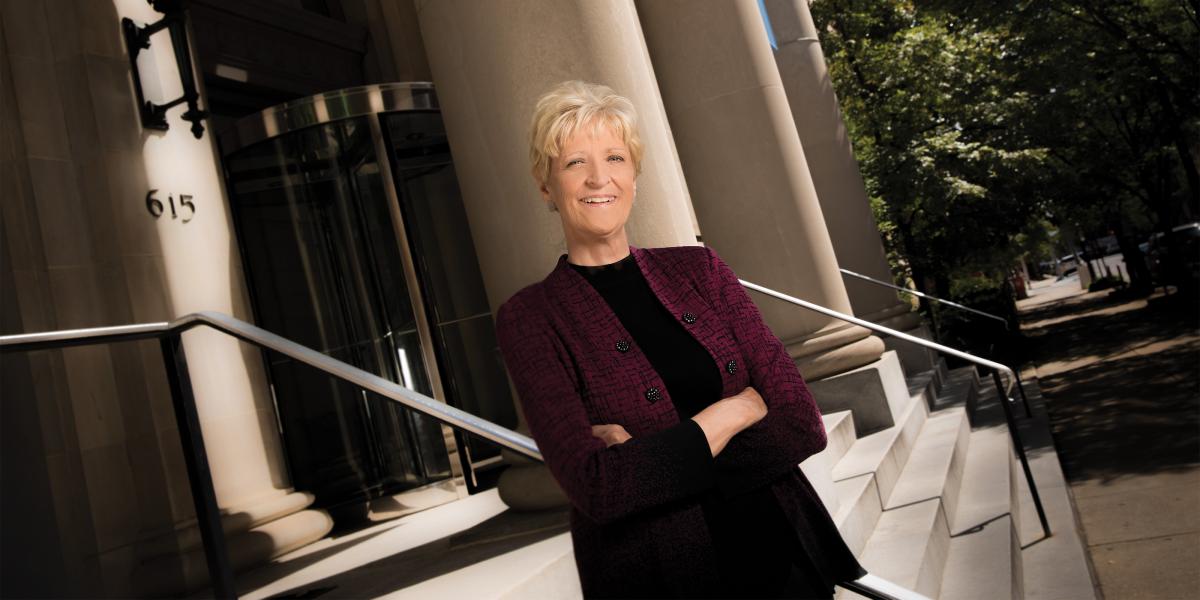Helping the Displaced
We must protect the health—and human rights—of those forced from their homes.
Like many of you, I was stunned and deeply disturbed by U.S. policies put in place last year that separated thousands of families who were seeking to enter the U.S. Although the Trump administration has now put an end to this unconscionable practice, many families are still not reunited, and those who were separated for weeks and months will likely face long-lasting health and mental health consequences. Family separations violate multiple international human rights conventions, including the Convention on the Rights of the Child.
These most recent events remind us all of the urgency of the larger refugee crisis and the critical links between health and human rights for all forcibly displaced persons.
By the end of 2017, more than 68 million individuals were displaced worldwide as a result of persecution, conflict or generalized violence. That’s the combined populations of California and Texas shunted to the margins of their own countries or pushed across borders to other nations. In Syria alone, nearly 7 million have been internally displaced, and an additional 5 million have fled Syria to countries including Turkey, Lebanon and Jordan.
These countries are overwhelmed with the influx of refugees, taxing their already fragile systems of health care. Not only are they challenged in meeting basic health, nutrition, and water, sanitation and hygiene (WASH) needs, but the lack of attention to early risk factors for noncommunicable diseases is a growing concern. If we don’t act globally—and locally—to address these needs, the long-term consequences will be devastating, especially for children, who represent nearly 40 percent of all forcibly displaced persons worldwide.
“Yes, we have to meet people’s need for clean water and sanitation, vaccinations against disease and access to health care. We also must ensure that all forcibly displaced persons—whether they are asylum seekers, refugees or internally displaced persons—have their basic rights to health care, security and freedom of movement protected.”
It’s essential that the public health community respond quickly and effectively. How we respond should exemplify our values and the approaches we take to protecting the public’s health. Yes, we have to meet people’s need for clean water and sanitation, vaccinations against disease and access to health care. We also must ensure that all forcibly displaced persons—whether they are asylum seekers, refugees or internally displaced persons—have their basic rights to health care, security and freedom of movement protected.
For the past 14 years, the Bloomberg School’s Center for Public Health and Human Rights has used research, teaching and advocacy to help some of the world’s most disadvantaged people assert their rights to health and human dignity. Today, the CPHHR team works in places like Brazil’s and Colombia’s borders with Venezuela, researching the health and rights threats faced by Venezuelans fleeing the health system collapse in their homeland. In Syria, we have been uncovering the scope of the violence inflicted by the Assad regime against its own citizens and the health care providers that serve them.
At the same time, the Johns Hopkins Center for Humanitarian Health partners with the Johns Hopkins schools of Medicine and Nursing to help inform on-the-ground responses to meet the needs of persons affected by humanitarian emergencies. The Center’s research has informed policies, improved health systems and advocated for humanitarian interventions to benefit vulnerable populations in countries around the world. To address the high burden of perinatal depression in post-conflict Uganda, the Center worked with Uganda’s government to develop a care model that integrates mental health screening and services into the existing maternal and child health care system. The Center has also examined the advantages of replacing the use of in-kind goods and services with cash-based approaches to humanitarian assistance. Its case study of the trauma care provided to injured civilians in Mosul led to recommendations that will inform WHO efforts to coordinate future trauma responses and referral practices that are based in humanitarian principles.
Here in the U.S., we are confronting extraordinary challenges in living up to a half-century-long commitment to provide sanctuary for people fleeing persecution. The CHH, with the CPHHR and the Johns Hopkins Berman Institute of Bioethics, has examined the moral and policy rationales for determining how many refugees should be resettled in the U.S. each year. This work will be a resource to the refugee, public health and immigrant communities as they work with Congress in renewing debates about the costs and benefits of refugee resettlement—debates that have been sidelined by the current administration’s draconian reductions in the number of people fleeing persecution who are permitted to resettle in the U.S.
The School is also involved in training hundreds of students in the evolving field of humanitarian health. Jacob Atem, who shares the story of his flight from South Sudan in this issue, is one such student. Most recently, the School has collaborated with the CHH to provide MPH scholarships to Syrian refugees to provide them with the knowledge and expertise to eventually help rebuild that war-torn country.
To raise awareness and propel the field of humanitarian health, the CHH has joined with The Lancet in publishing the Humanitarian Health Digest, a quarterly bibliography of published peer-reviewed journal articles on humanitarian health that provides links to articles so that workers from across the globe can apply lessons learned to benefit persons affected by conflicts and other humanitarian emergencies.
Through these and other activities, we are committed to improving the health and well-being of the millions of people who have been displaced. We will continue to educate, research and advocate to help them meet their basic public health and health care needs, while working to ensure that government policies here and elsewhere respect their rights and their dignity as human beings.
